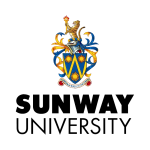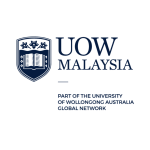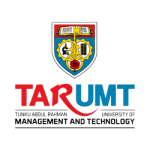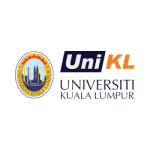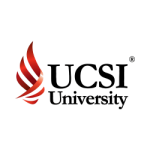
A diploma is one of the popular tertiary educational pathways for learners in Malaysia.
SPM leavers who already have a specific field of interest in mind, such as entrepreneurship, accounting, or tourism, can gain admission to their preferred diploma programmes easily as most courses only require three credits in SPM or equivalent.
Getting a diploma is also a fast route for students who want to obtain work experience before pursuing their undergraduate degree. Working professionals may pursue diploma programmes as well to acquire new or additional skills to level up their careers.
But what does a diploma entail? This article provides essential information about diplomas in Malaysia to help you gain a better understanding before deciding what diploma course you want to pursue.
What is a diploma?
A diploma is an academic credential that’s higher than a foundation qualification and lower than a bachelor’s degree. According to the Malaysian Qualification Agency (MQA), a diploma is categorised as a Level 4 academic qualification while a bachelor’s degree is at Level 6.
The assessment methods in diploma programmes are usually a mixture of examinations and coursework, such as assignments, projects and presentations. Students are required to fulfil a minimum of 90 credits to complete their diploma studies.
Diplomas aim to prepare you for the workforce after you complete your studies. They focus on industry-specific knowledge in their syllabus along with industrial training to give you hands-on skills. Studying a diploma is also a pathway to further education. You can use your diploma to pursue your undergraduate studies to get a bachelor’s degree.
The qualification allows you access to a wide variety of fresh graduate roles. You can gain valuable work experience before moving on to a bachelor’s degree later. For example, you could complete a Diploma in Accounting followed by a bachelor’s or master’s degree in business-focused fields to help you advance your career.
What are the entry requirements for a diploma?
Academic requirement
The entry requirements of diploma programmes may differ according to an institution and their fields of study, but students are generally required to fulfil one of these requirements or any equivalent recognised by the Malaysian Government:
- Sijil Pelajaran Malaysia (SPM)/Sijil Pelajaran Malaysia Vokasional (SPMV): three credits; OR
- O-Level: At least Grade C in three subjects; OR
- Unified Examination Certificate (UEC): three Bs; OR
- Sijil Kemahiran Malaysia (SKM): Level 3 in a related field; OR
- Sijil Tinggi Persekolahan Malaysia (STPM): Grade C (CGPA 2.00) in one subject; OR
- Sijil Tinggi Agama Malaysia (STAM): Pass with Maqbul; OR
- Certificate in a related field with at least a CGPA of 2.00
Language requirement
Some universities also require local students pursuing a diploma to have a pass or a specific grade in particular subjects like mathematics and English at SPM level or equivalent to enrol.
International students may need to take language examinations to prove their English competency, such as:
- Malaysian University English Test (MUET)
- International English Language Testing System (IELTS)
- Test of English as a Foreign Language (TOEFL)
- International Benchmark Test (IBT)
- Cambridge English or Pearson Test of English (PTE)
The pass marks required for these exams vary according to the institution.
APEL.A
You may also enrol in a diploma course using your work experience. Accreditation of Prior Experiential Learning for Access (APEL.A) is a pathway established by the MQA for local and international non-traditional learners to enter higher education.
You need to be at least 20 years old with relevant work experience to apply for an admission to a diploma programme. APEL.A’s assessment involves a portfolio appraisal as well as an aptitude test to evaluate your general knowledge and literacy in numeracy, English and Bahasa Malaysia. Once you pass the assessment stage, you will receive an APEL.A certification.
Keep in mind that the certification does not guarantee your enrolment in a diploma programme. You are still subjected to an institution’s admission procedures and there may be additional entry requirements you need to fulfil.
How long does it take to complete a diploma?
A diploma typically takes two to two and half years of full-time study across different disciplines, such as business, accounting, marketing and more.
You can also enrol in a diploma programme as a part-time student. It will generally take you three and a half years to complete your studies. Open University Malaysia (OUM) offers all of its courses in part-time mode, including diplomas.
Universiti Teknologi Malaysia (UTM) also provides part-time diplomas for some of its courses. Classes are held on weekends, allowing students to pursue their education without compromising their personal or professional commitments on weekdays.
Can I study a diploma online?
Yes, you can study a diploma online. Thanks to rapid technological advancements, educational institutions are recognising the need to digitalise their learning experiences to allow more flexibility for students and working professionals.
By studying an online diploma, learners can enjoy the convenience of attending classes without travelling to physical campuses. Universities are also able to enrol more students when they offer online learning opportunities. Students may have 24/7 access to study materials as well.
Online diplomas are not inferior to their on-campus counterparts as they cover the same syllabus. They are also treated as legitimate in the eyes of employers as long as they have MQA accreditations.
You can find various online diplomas provided by universities in Malaysia.
Why should I study a diploma?
There are many benefits of getting a diploma in Malaysia. Some of them include:
- Lower admission requirements: Diploma programmes are less demanding compared to other pre-university programmes when it comes to entry requirements. For example, students generally need to have at least five credits in SPM to enrol in a foundation programme, but diplomas only require three credits.
- Financially more accessible: Some students may want to apply for educational loans to fund their diploma studies. They can get financial assistance from Perbadanan Tabung Pendidikan Tinggi Nasional Malaysia (PTPTN), a government body that offers study loans to Malaysian students pursuing tertiary education. Diploma students are fortunate as many other pre-university programmes (such as A-levels and most foundation courses) are not covered by PTPTN.
- Gain career-specific expertise: Diploma courses are designed to equip you with the necessary knowledge and hands-on skills relevant to your chosen field of study. Most diploma courses also have internships in their curriculum, allowing you to obtain exposure to your industry and real-life experiences to complement your formal education.
- Early entry into the workforce: There are many fresh graduate roles across various industries that only require a diploma. You can utilise the skills you acquired from your diploma curriculum to gain work experience first before furthering your studies.
- Shortens undergraduate studies: Many diploma programmes allow you to transfer credits to start your second year of a bachelor’s degree in a related field. You will be able to graduate earlier and have access to higher-paying roles in the job market with the academic credential.
Top universities offering diplomas
Many leading universities in Malaysia offer diploma programmes in various fields. The institutions mentioned below are ranked based on the QS World University Rankings 2025 for Malaysian universities in the Asia region.
Diploma in Business
| University | Programme |
|---|---|
| Taylor's College |
|
| INTI International University |
|
| Sunway College |
Diploma in Business Administration
|
| Asia Pacific University (APU) |
Diploma in Business Administration
|
| Management & Science University (MSU) |
|
| Multimedia University (MMU) |
|
| HELP University |
|
Diploma in Accounting
| University | Programme |
|---|---|
| Taylor's College |
|
| INTI International University |
|
| Sunway College |
|
| Asia Pacific University (APU) |
|
| Management & Science University (MSU) |
|
| UNITAR International University |
|
Diploma in Management
| University | Programme |
|---|---|
| UCSI University |
|
| Management & Science University (MSU) |
Diploma in Office Management Technology
|
| Multimedia University (MMU) |
|
| MILA University |
Diploma in Business Management
|
| University of Wollongong (UOW) Malaysia |
Diploma in Business Management Online
|
| MAHSA University |
|
Diploma in Finance
| University | Programme |
|---|---|
| UCSI University |
|
| Sunway College |
|
| Management & Science University (MSU) |
|
| Multimedia University (MMU) |
|
| TAR UMT |
Diploma in Finance & Investment
|
Diplomas in other fields
| University | Programme |
|---|---|
| UCSI University |
Diploma in Logistics Management
|
| Asia Pacific University (APU) |
Diploma in Business Information Technology
|
| Management & Science University (MSU) |
Diploma in Human Capital Management
|
| UNITAR International University |
Diploma in Logistics Management
|
| SEGi University |
Diploma in Human Resource Management
|
| MAHSA University |
|
FAQs about diplomas in Malaysia
Many universities in Malaysia offer scholarships to support eligible students financially. TAR UMT’s merit scholarship waives a successful candidate’s tuition fees completely if they achieve a CGPA of 3.50 and above. If you are a sports athlete, school leader, or even a social media influencer, you can apply for HELP University’s School Achievers Award. The university will provide a full waiver for successful applicants enrolling in diploma courses. Sunway University provides scholarships in the form of tuition fee deductions of up to RM15,000 for diploma students.
You can also find full and partial scholarships provided by external organisations. The Hong Leong Foundation offers a non-bonding scholarship to diploma students in public and private universities. Some scholarships cater specifically towards underprivileged individuals with little focus on academic achievements. The Elena Cooke Education Fund is open for diploma applicants who obtained at least 3As in SPM, 2Bs in STPM or 6Bs in UEC. The organisation offers partial scholarships for students in public universities. It also covers tuition and general fees as well as provides allowances for students enrolled in selected courses at Sunway University (Selangor campus only) and HELP University.
Another way you can fund your studies is by applying for a study loan like PTPTN. The organisation decides your loan entitlement based on your household income. This study loan is a popular option because of its low interest rate of 1 per cent per annum and students are given a 12-month grace period after completing their studies.
Gaining a diploma is a great educational venture for an individual who wants to acquire foundational skills and knowledge in their preferred area of study. After completing their studies, they may continue honing their expertise by enrolling in a relevant bachelor’s degree or entering the workforce to gain work experience. They may apply for roles across various sectors that only require a diploma.
A working professional may also pursue a diploma to obtain additional skills to stay competitive in their field. If they aim to change careers, studying a diploma in a different discipline may help them discern if it’s the right professional path for them.
The difficulty of a diploma varies according to its subjects, field of study and assessments. Students are usually evaluated with a mixture of coursework and examinations. Most courses also require them to do internships to teach them how to apply their theoretical knowledge in real-life situations.
A foundation is considered a level lower than a diploma. Foundation courses are designed to prepare students to enter a higher education level such as a bachelor’s degree. Diploma courses equip students with knowledge and skills that allow them to enter the workforce immediately or pursue an advanced degree.
You can proceed with your undergraduate studies by enrolling in a bachelor’s degree programme. Some universities allow you to transfer credits to proceed to your second year of a bachelor’s degree, helping you to reduce your study duration. If you have plenty of work experience as a diploma holder, you can skip your bachelor’s studies and go straight to a master’s programme using the APEL.A pathway.
Enrol in a diploma course in Malaysia
Acquiring a diploma is a great starting point for your tertiary education. Not only will you develop job-ready knowledge and skills in your preferred field of study, but you will also build a solid foundation for your undergraduate studies. Embark on your journey today and discover a diverse range of diploma courses in Malaysia at the top of this page.



